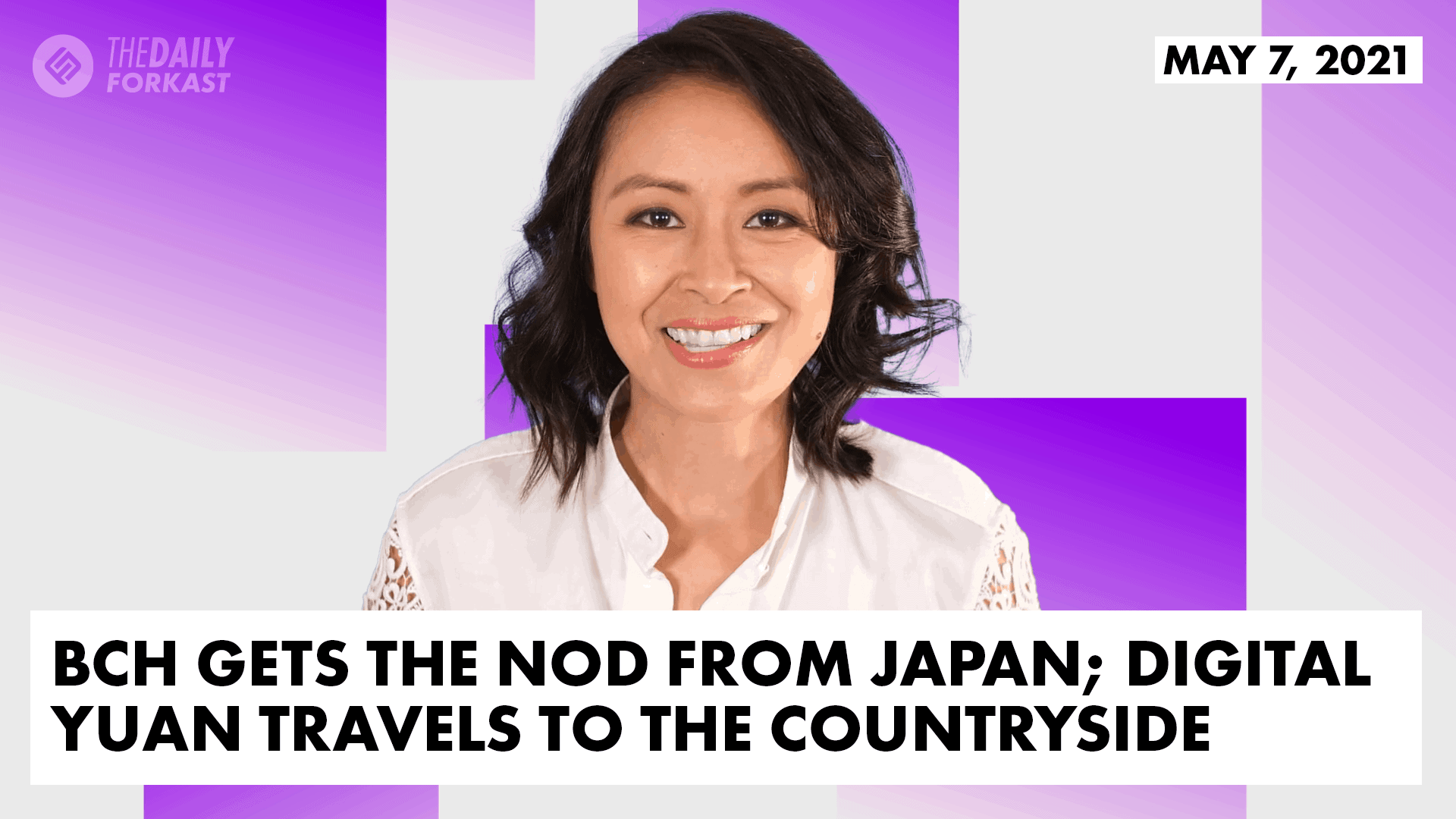While Bitcoin Cash surges, we talked to a Japanese coffee shop owner who just started accepting BCH as payment yesterday.
Buying bubble tea with a digital yuan — China’s DCEP pilot program continues to expand.
Police in Korea are told no to crypto, but who will police the police?
We’ll have more on that story — and other news shaping the cryptocurrency and blockchain world — in this episode of The Daily Forkast, May 7.
Transcript
Welcome to the Daily Forkast, May 7th, 2021, I’m Angie Lau. Let’s get you up to speed from Asia to the world.
Get ready to hear a lot more about Bitcoin cash. The Bitcoin spin-off with lower transaction fees has made its way into the top ten of cryptocurrencies. One reason for its rise in popularity — transaction fees. The US$20 transaction may not be that big of a deal if you’re trying to buy a Tesla with Bitcoin. But what if you just want to get a cup of coffee?
Taking you to Japan now. About an hour and a half by bullet train from Tokyo is the Drip & Drops coffee shop. There, Bitcoin Cash is being accepted. The store’s owner, Asushi Yoshino says accepting BCH is just easier.
“The credit card fees are high but cryptocurrency and smartphone payments are cheaper and that helps. Plus, payments can be done more quickly.”
And with next week’s network upgrade, transactions will be more scalable, customizable for users, and reportedly more secure.
“It’s basically 99.999% secure to accept an unconfirmed transaction as a merchant. But now, with the introduction of double speed proofs that it’s just becoming even more impossible to double spend.”
After flipping Litecoin for the number nine position in market cap this week, Bitcoin Cash fans now have Polkadot in sight.
Taking a look at the other Bitcoin — down just under 2& on the day here in Asia and in the top ten for cryptocurrencies, Dogecoin shaking off the stage fright before tomorrow’s Elon Musk’s SNL gig, up almost 3%. And Cardano is up almost 10 percent.
And take a look at this, a bubble tea shop in the technology hub of Shenzhen, China. You can pay in cash, but you can also buy your boba using the digital yuan. Shenzhen, of course, one of the pilot cities for the program in China. And now, that program is expanding to the countryside.
Villagers in northern China’s Dalian City are using the digital yuan for trading goods in farmers markets. Some industry experts believe pushing the digital yuan to less tech-savvy villages is just the next step towards China’s official CBDC launch.
But it doesn’t stop there. During the Golden Week Labor holiday, China unleashed 10 million RMB — or over US$1.5 million worth of free digital yuan for spending in major cities Suzhou and Shanghai. Tourist hubs such as Hainan, which is also a free-trade port, are now accepting the digital yuan for concession.
And although China is leading the global CBDC race by all accounts, other nations in the region are attempting to, at least in some form, keep up. In Thailand, retail CBDC is being explored. A public consultation exercise is now underway. Hong Kong two is exploring a CBDC to be distributed to the public through commercial banks and payment service providers. And in Japan, despite the launch of CBDC research, looking at proof of concept, the Bank of Japan is still not sure the nation needs a digital yen. Experts fear that caution could cost Japan its competitive edge. The marathon that is CBDC — they have a long way to go in catching the front runner to their west.
And finally leaving you with this in South Korea, policing the police. The Korean PD is prohibiting its officers from buying crypto. The force also being told to disclose their current crypto holdings. If caught investing, punishment may follow. And here’s where things get a little tricky. Due to lack of regulatory clarity, the police don’t have the jurisdiction on crypto investments, meaning at this point, they may just have to rely on the officers themselves to turn themselves in.
And that’s The Daily Forkast. I’m Angie Lau. until next time.

